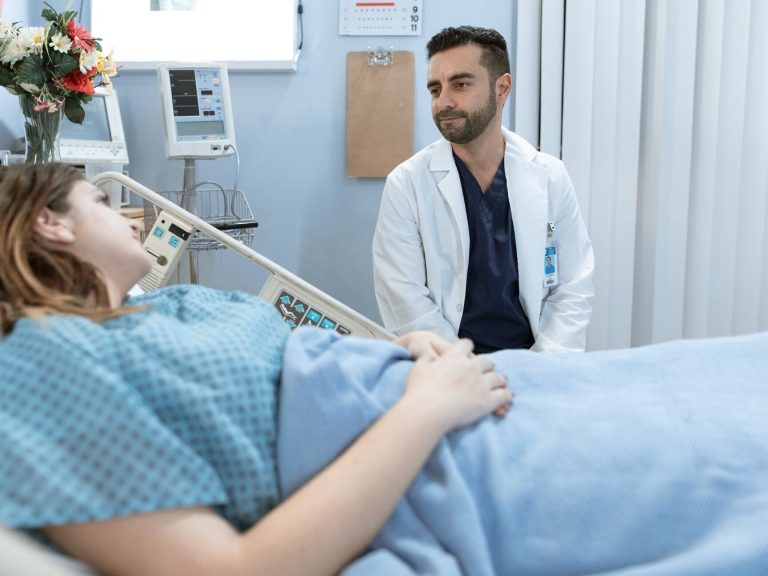Experts: a senior list designed so that seniors have optimal access to treatment for the diseases they most often suffer from

I am glad that the new senior list includes vaccines: a very important step to encourage seniors to prevent, for example influenza or pneumococci, says Dr. Marek Tombarkiewicz, director of the National Institute of Geriatrics, Rheumatology and Rehabilitation. – When it comes to the most important new groups of drugs, these are undoubtedly flozins. The presence of flozins on the reimbursement list, and now also on the senior list, is a real breakthrough – emphasizes Dr. Tombarkiewicz.
The list of free medicines, in force since September 2023, includes medicinal products for the most popular lifestyle diseases, such as diabetes, cardiovascular diseases, kidney diseases, hormonal disorders, hypertension and cancer. – The senior list is a real chance to improve the quality of life and health of seniors. Older people usually have several chronic diseases at the same time. The list responds to such situations, explains Elżbieta Piotrowska-Rutkowska, president of the Supreme Pharmaceutical Chamber. – It includes both basic drugs for the most popular chronic diseases, as well as modern pharmacotherapies, e.g. antidiabetic drugs of the latest generation. There are also medications taken on an ad hoc basis, e.g. antibiotics, painkillers, and antifungals. Such wide access to treatment will allow older people to start treatment immediately, which in turn will allow them to control their health to a greater extent, making everyday functioning easier and improving the quality of life – adds Rutkowska.
– I am very pleased that vaccines are included on the new senior list – this is a very important step to encourage seniors to prevent, for example influenza or pneumococci, says Dr. Marek Tombarkiewicz, director of the National Institute of Geriatrics, Rheumatology and Rehabilitation. – When it comes to the most important new groups of drugs, these are undoubtedly flozins. Recently, the recommended model of diabetes treatment has changed, which includes administering metformin and flozin first, i.e. drugs that cause the loss of sugar through the kidneys. Additionally, they are of great importance in the prevention of cardiovascular diseases and strokes. So the presence of flozins on the reimbursement list, and now also on the senior list, is a real breakthrough. Seniors couldn’t dream of a better gift.
Financial benefits in the short and long term
In addition to the medical benefits resulting from the possibility of immediate treatment, access to free medicines is a great financial relief for older people who, suffering from chronic diseases, have to buy medicines for their diseases every month. As Marek Tombarkiewicz notes, compared to the previous lists of free medicines, Poles’ savings will be noticeably greater than in previous years: – The National Health Fund plans to spend approximately PLN 375 million on reimbursement by the end of the year, i.e. in just the next four months. This shows the scale of the phenomenon: in previous years, approximately this amount was allocated for the entire year of reimbursement. Importantly, most of these savings concern seniors, because they are forced to take medications permanently. This money will stay in their wallets, says the director of NIGRR.
From a systemic point of view, expanding the senior list to include new substances and disease entities while expanding the group of people entitled to receive these benefits is a long-term investment of the state in the health of the older generation of Poles.
– The change thanks to which seniors have immediate access to therapy will protect them from the consequences of untreated lifestyle diseases from which they suffer – explains Marek Tombarkiewicz. – This is of great importance: it is a response to current social issues, such as problems with the availability of highly qualified, experienced staff on the labor market. Properly treated seniors can stay healthy longer and, therefore, be professionally active longer. Moreover, their health condition does not deteriorate rapidly, so they do not have to resort to hospital treatment, which is always the most burdensome from a systemic point of view. All this becomes particularly important in a situation when the average life expectancy of society is constantly increasing, and therefore the population of seniors is becoming more and more numerous. It is in our common interest to support their health.
How to obtain an “S” prescription and use the help of a pharmacist
To be able to take advantage of the free drug supply program for seniors aged 65+, you must first obtain a prescription marked with a clear “S” symbol. The easiest way to obtain it is from a primary health care physician (POZ) or from a POZ nurse authorized to issue prescriptions who have a signed contract with the National Health Fund or provide services under a contract with the National Health Fund. Senior prescriptions can also be issued by outpatient specialist care specialists (AOS), but only to patients who have set up an Internet Patient Account (IKP) and who have given the specialist consent to access the data contained therein.
Pharmacists play an invaluable role in the effective and safe use of free medicines by patients. – Let us remember that from the pharmacist’s point of view, giving patients free medicines is the first element of improving a senior’s health. The second extremely important step is to supervise his pharmacotherapy. Pharmacists see that patients take too many drugs that interact with each other – in such a situation, the therapeutic effect is not optimal. It is very important that the patient is monitored by a pharmacist in this respect, says Elżbieta Piotrowska-Rutkowska.
Director Tombarkiewicz sees an equally important role for the pharmacist in this process. – When it comes to educating patients by pharmacists, a huge leap forward in terms of their rights took place with the adoption of the Act on the Pharmacist Profession in December 2020. It states, among other things: that the pharmacist is authorized to review the medications used by the patient and check whether polypharmacy, i.e. inappropriate multi-drug therapy, occurs in a given case. This is an important step in expanding the rights of pharmacists and, at the same time, improving patient health and safety, he notes.
Pharmacists can also provide patients with important information about whether the medicine they are taking is on the list of senior medicines and refer them to an appropriately marked prescription if the patient would like to obtain a free medicine based on a prescription issued before September 1 this year.
IKP account
The introduction of the senior list gives many people access to free treatment, but patients should remember a few important things.
Experts encourage patients to set up Internet Patient Accounts (IKP). With such an account, they will be able to check whether the medicines they take every day due to chronic diseases are entitled to them for free. Additionally, they can check the status of their prescriptions there. If they were already prescribed before the new senior list came into force, e.g. for the whole year at the beginning of the year, and therefore do not have the “S” marking, then they should contact their doctor for a new prescription with this marking.
Patients can also use the moment of visiting a doctor to check the safety of therapy with the new preparation together with the medications they are already taking or possibly dietary supplements. – First, patients should inform doctors what medications they are taking. Of course, you can check it in the IKP, but seniors often do not have this account on the Internet, and only primary care physicians have access to the IKP without involving the patient. The patient can also consult with a doctor or pharmacist about purchasing dietary supplements – to assess whether the supplement is actually needed – emphasizes Elżbieta Piotrowska-Rutkowska.
– Every family doctor now has insight into what prescriptions are being written for his patient by all other specialists, i.e. he knows what medications were recommended to the patient and whether the prescription was filled. Thanks to this, he has more complete information about what influences the patient’s condition and can eliminate undesirable drug interactions resulting from taking various preparations. This is an additional element of increasing the level of patient safety – adds Marek Tombarkiewicz, head of NIGRR.
When to consider a long-term prescription
In the case of treating patients with chronic diseases, e.g. diabetes, hypertension, heart failure or kidney disease, doctors can prescribe the so-called long-term prescription, for several packages of the drug. Currently, this is also a good option for patients whose drugs will temporarily “fall out” of the reimbursed list in the near future and will not be available free of charge to seniors. This situation applies, for example, to flozyn: from November 1 until the end of the year, patients will not be able to receive the drug free of charge.
– If it is known that the patient is already on therapy with flozins and it is known that he will take them chronically, then for the period of their absence on the reimbursement list, he can ask the doctor to prescribe two or three more packages to ensure continuation of therapy until his return. drug for reimbursement. This is due to the specificity of flozin therapy: these are drugs taken chronically, so they should not be discontinued for some time. Additionally, they have a very good safety profile. – explains director Tombarkiewicz.
Extending the possibility of free treatment for seniors, especially in the case of chronic diseases, provides invaluable support for this social group. However, experts agree that in order for older patients to take full advantage of the possibilities offered by this solution, they should follow several important rules, such as obtaining a prescription marked with the letter “S” in a timely manner, consulting a doctor or pharmacists of the risks arising from the simultaneous use of many drugs and dietary supplements, as well as ensuring the possibility of continuing therapy during periods of limited availability of their drugs.
Source: Press materials






